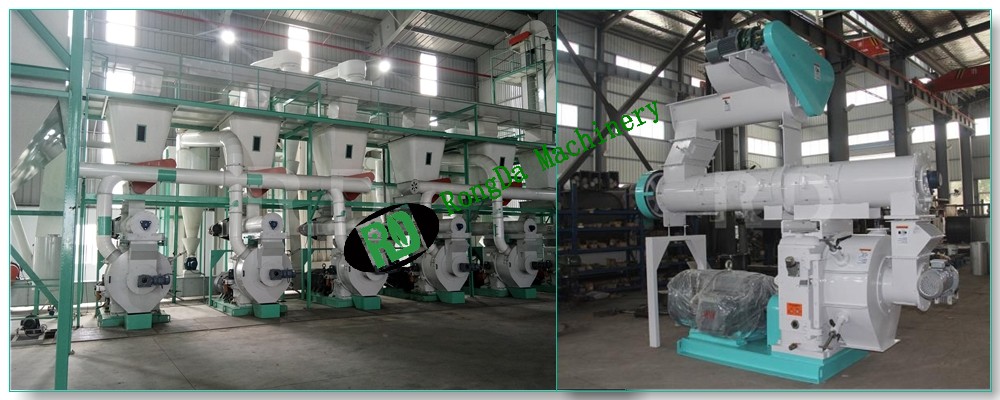Welcome to Rongda Machinery Co., Ltd
Toggle Navigation

Ever wondered what happens to all those piles of wood chips, crop stalks, or rice husks left over after a harvest? Instead of letting them rot or burn, folks around the world are turning this so-called waste into clean, green energy using biomass pellet machines. These nifty devices are quietly changing how we heat our homes, power factories, and even tackle climate change. Let’s dive into why these machines are making waves and how they’re shaping a more sustainable future.
Picture this: you’ve got a heap of sawdust or straw sitting in your backyard. A biomass pellet machine takes that mess and squeezes it into compact, burnable pellets—think of them as eco-friendly firewood logs, but smaller and smarter. These machines are incredibly versatile, handling everything from hardwood chips to cotton stalks. Thanks to clever tech like smart sensors, they keep tabs on things like moisture (aiming for 15-25%) and temperature (40-80°C) to make sure the pellets burn cleanly and efficiently.
What’s cool is how these machines have evolved. Newer models use energy-efficient drives—think 55KW motors with electric oil pumps that sip power, cutting energy use by about 18% compared to older clunkers. Plus, self-cleaning rollers mean less hassle, letting the machine run smoothly for over 200 hours without needing a tune-up. It’s like having a low-maintenance kitchen appliance that churns out fuel instead of cookies.
These pellets aren’t just for starting fires—they’re rewriting the rules of energy. For homeowners, small D-Type or R-Type pelletizers are a game-changer. Imagine firing up your BBQ or heating your house with pellets that cost 30% less than traditional fuels. Farmers are getting in on the action too. In places like Henan, China, agricultural co-ops are turning cotton stalks into pellets that fetch $120 per ton. That’s extra cash for farmers and less waste clogging up fields.
Big industries are jumping on board as well. In Southeast Asia, power plants using 8mm-diameter pellets from ring-die mills are seeing efficiency boosts of up to 22%. Companies like AGICO GROUP are even closing the loop—repurposing 85% of wood waste into pellets that align with big sustainability goals, like the EU’s Green Deal. It’s a win-win: less waste, more energy, and a happier planet.
So, how do you choose a pellet machine that fits your needs? It depends on what you’re after. If you’re a small farmer or homesteader, a compact model with a 550kg capacity might do the trick—affordable and perfect for small batches. Got bigger plans? Factories often go for high-output systems that can churn out 36,000 kg of pellets and pay for themselves in just 14 months.
The type of material matters too. If you’re working with hardwood, you’ll need a heavy-duty machine with 250KW power and 850mm ring molds. For straw or softer materials, look for machines with quick-change dies for flexibility. And don’t skip the fine print—check for CE certifications, especially if you’re in Europe or North America. Brands like Zhengzhou Songbai offer 380V/50Hz units that meet strict standards.
Here’s a tip: go with suppliers who back their machines with video factory tours and solid warranties. ZhongDeBao, for example, has a support team that sorts out 90% of issues remotely in under two hours. That’s peace of mind you can’t put a price on.
The buzz around biomass pellets is only getting louder. By 2025, the global market could hit $18 billion, and the tech is getting smarter. Some machines now double as biochar producers, opening doors to carbon credits for businesses. Governments are sweetening the deal too—China’s covering 40% of equipment costs for small businesses, while the U.S. offers tax breaks for pellet-based heating systems under the Inflation Reduction Act.
Whether you’re a homeowner eyeing a $850 mini pelletizer or a factory manager planning to go big, there’s never been a better time to jump in. Biomass pellets are turning yesterday’s waste into tomorrow’s energy, and the world’s taking notice.
References: Technical insights from AGICO’s pellet solutions, pricing from ZhongDeBao’s ring-die systems, market trends from Songbai Machinery, and sustainability data from Mascot’s crusher-pellet systems.